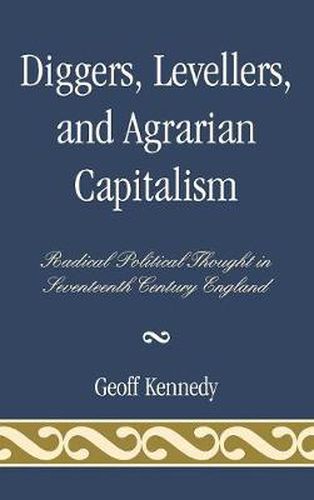Readings Newsletter
Become a Readings Member to make your shopping experience even easier.
Sign in or sign up for free!
You’re not far away from qualifying for FREE standard shipping within Australia
You’ve qualified for FREE standard shipping within Australia
The cart is loading…






This book situates the development of radical English political thought within the context of the specific nature of agrarian capitalism and the struggles that ensued around the nature of the state during the revolutionary decade of the 1640s. In the context of the emerging conceptions of the state and property-with attendant notions of accumulation, labor, and the common good-groups such as Levellers and Diggers developed distinctive forms of radical political thought not because they were progressive, forward thinkers, but because they were the most significant challengers of the newly-constituted forms of political and economic power. Drawing on recent re-examinations of the nature of agrarian capitalism and modernity in the early modern period, Geoff Kennedy argues that any interpretation of the political theory of this period must relate to the changing nature of social property relations and state power. The radical nature of early modern English political thought is therefore cast in terms of its oppositional relationship to these novel forms of property and state power, rather than being conceived of as a formal break from discursive conventions.
$9.00 standard shipping within Australia
FREE standard shipping within Australia for orders over $100.00
Express & International shipping calculated at checkout
This book situates the development of radical English political thought within the context of the specific nature of agrarian capitalism and the struggles that ensued around the nature of the state during the revolutionary decade of the 1640s. In the context of the emerging conceptions of the state and property-with attendant notions of accumulation, labor, and the common good-groups such as Levellers and Diggers developed distinctive forms of radical political thought not because they were progressive, forward thinkers, but because they were the most significant challengers of the newly-constituted forms of political and economic power. Drawing on recent re-examinations of the nature of agrarian capitalism and modernity in the early modern period, Geoff Kennedy argues that any interpretation of the political theory of this period must relate to the changing nature of social property relations and state power. The radical nature of early modern English political thought is therefore cast in terms of its oppositional relationship to these novel forms of property and state power, rather than being conceived of as a formal break from discursive conventions.